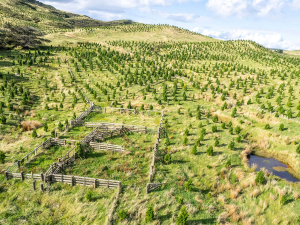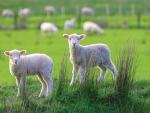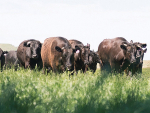The Government claims to have delivered on its election promise to protect productive farmland from emissions trading scheme (ETS) but red meat farmers aren’t happy.
The Climate Change Response (Emissions Trading Scheme Forestry Conversions) Amendment Bill has passed its third reading in Parliament.
Minister of Agriculture and Forestry Todd McClay says the Bill strikes the right balance between protecting New Zealand’s most productive farmland and maintaining confidence in the ETS.
“We campaigned on stopping the wholesale conversion of farms into pine forests, and we have delivered.
“This Bill restores balance. It protects food production, supports rural communities, and ensures foresters can continue to invest with confidence.”
But Beef + Land New Zealand believes the legislation still doesn’t go far enough to slow the rate of productive sheep and beef land being lost.
Chair Kate Acland says B+LNZ called for changes to the legislation during the Environment Committee process.
Read More:
“We’re pleased to see the legislation contains some changes following consultation, including tightened criteria for temporary exemptions on land converted after 4 December 2024 entering the ETS, and bringing forward a review of the annual hectare limit to 2028.
“It’s also encouraging that the Government has committed to addressing the significant increase in pests that we’ve seen in the last couple of years as a result of the increase in forestry and improving fire management. These are areas of major concern for our farmers.
“However, what hasn’t changed is the fundamental issue that the legislation won’t go far enough in slowing down whole farm sales for conversion.
“We’re really disappointed our calls to extend the moratorium on whole farm conversions to all land classes, not just classes 1-5, have not been listened to.”
She says 89% of whole farm conversions to date have occurred on land classes 6-8.
Land class 6, in particular, is highly productive and vital to the red meat sector, she says.
“It is good to see some concrete limits in place, but we remain concerned that this is just tinkering around the edges rather than truly addressing this devasting issue for our sector.
“B+LNZ has been calling for action since 2019 and we’ve lost at least 300,000 hectares of whole sheep and beef farms to forestry interests since 2017. Our modelling shows that even with the new restrictions we could see a further 650,000 hectares lost by 2050 – and a total of one million hectares would equate to an 18 percent drop in stock units.
“We can’t double exports if we’ve planted our breeding land in trees. New Zealand’s ETS settings are artificially distorting the market and incentivising this wholesale conversion – we are the only country in the world, apart from Kazakhstan, to allow 100 percent offsetting in its carbon pricing mechanism.”
Key changes in the Bill include:
- Limits on exotic forestry registrations for actively farmed Land Use Capability (LUC) classes 1–6 — New Zealand’s most productive farmland.
- Flexibility for farmers to plant and register up to 25% of their productive land in forestry.
- Exemptions for certain classifications of Māori owner land.
- Two annual ballots allowing up to 15,000 hectares of new exotic forestry on LUC 6 land.
- Transitional provisions for those who invested in forestry in good faith before December 2024.
- A review of the annual hectare limit in 2028, providing an additional safeguard to ensure the settings are working as intended.











